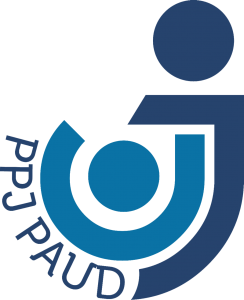Peran Parenting Self Efficacy Orang Tua Pada Perkembangan Anak Usia Dini Di Kelompok B
Abstract
This study aims to gather data and information about Parenting self-efficacy, which refers to parents' confidence in their ability as parents. The study uses a qualitative descriptive approach and involves 10 parents as research subjects. The method comprised observation, interviews, and documentation. The findings on the role of parenting self-efficacy in early childhood development conclude that parents with high parenting self-efficacy were better at supporting their children's positive development compared to parents with low parenting self-efficacy. The important role in early childhood development lies in confident parents who tend to provide appropriate attention, stimulation, and support for their child's development. Confident parents are more effective in providing cognitive stimulation and building positive social relationships with their children. Early childhood is a crucial period in an individual's life, and parental involvement plays a significant role.
References
Dewey, J., Llavador, J. B., & Llavador, F. B. (1997). Mi credo pedagógico. León: Universidad de León.Heri Rahyubi (2012:228)
Eidelman, A. I. (2012). Breastfeeding and the use of human milk: an analysis of the American Academy of Pediatrics 2012 Breastfeeding Policy Statement. Breastfeeding medicine, 7(5), 323.
Gijbels, K., Masure, S., Carton, H., & Opdenakker, G. (1992). Gelatinase in the cerebrospinal fluid of patients with multiple sclerosis and other inflammatory neurological disorders. Journal of neuroimmunology, 41(1), 29-34.Howenstein, et al., 2015).
Kendall, S., & Bloomfield, L. (2005). Developing and validating a tool to measure parenting self‐efficacy. Journal of advanced nursing, 51(2), 174-181.
Kurnia, Y. (2015). Pengembangan Kemampuan Nilai-nilai Agama dan Moral di TK. Bandung: PPPPTK TK dan PLB.
Piaget, J., & Cook, M. (1952). The origins of intelligence in children (Vol. 8, No. 5, pp. 18-1952). New York: International Universities Press
Santrock, J.W. (2011). Perkembangan Anak. Jakarta: Salemba Humanika.
Soetjiningsih. (2010). Tumbuh Kembang Anak. Jakarta: EGC.
Susanto, A. (2011). Perkembangan Anak Usia Dini: pengantar dalam berbagai aspeknya. Kencana.Aqib, 2009: 40-41).
Suzuki, S., Holloway, S. D., Yamamoto, Y., & Mindnich, J. D. (2009). Parenting self efficacyand social support in Japan and the United States. Journal of Family Issues, 30(11), 1505-1526.
Copyright (c) 2023 Nur Anisa Korua, Irvin Novita Arifin, Sri Wahyuningsi Laiya

This work is licensed under a Creative Commons Attribution-ShareAlike 4.0 International License.






